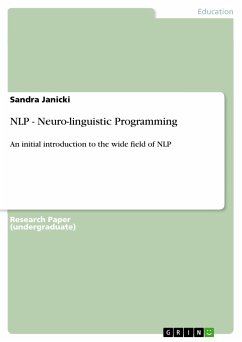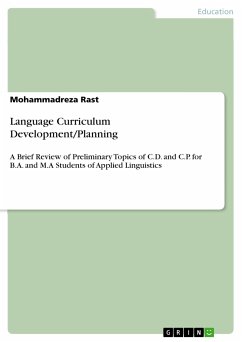Research Paper (undergraduate) from the year 2010 in the subject Didactics for the subject English - Miscellaneous, grade: 1,3, , language: English, abstract: „One cannot not communicate“ (Watzlawick et al. 1969/2007, p. 53 ). Paul Watzlawick’s quote is one of the most important basic assumptions in the field of communication studies. There is no substitute for behavior, so every kind of behavior is a type of communication. Therefore, it is not possible not to communicate. Based on this fact and the further fact that every social interaction contains a type of communication, it is important to find and study the areas where we can further our communication skills. Since its discovery Neuro-linguistic Programming (NLP) can be found in nearly every western industrial country. There are many types of training and coaching available. Companies use NLP for their human resource development, especially for their specialist and executive staff. But what is behind NLP which is likely to be announced as an omni-potent method? Is it just a profitable commercial theory or can advantages be found concerning the communication process? The intention of the current seminar paper is an initial introduction to the wide field of NLP and to present some ways to improve communication skills. After a short introduction, concerning the origin and development of NLP, chapter 2 presents two main principles of the NLP model. Chapter 3 will provide an overview of main elements of Neuro-linguistic Programming and the following chapter gives an overview of basic methods and techniques to show how you can develop your communication skills. The seminar paper will be completed with an overview of the fields of application and a résumé.









